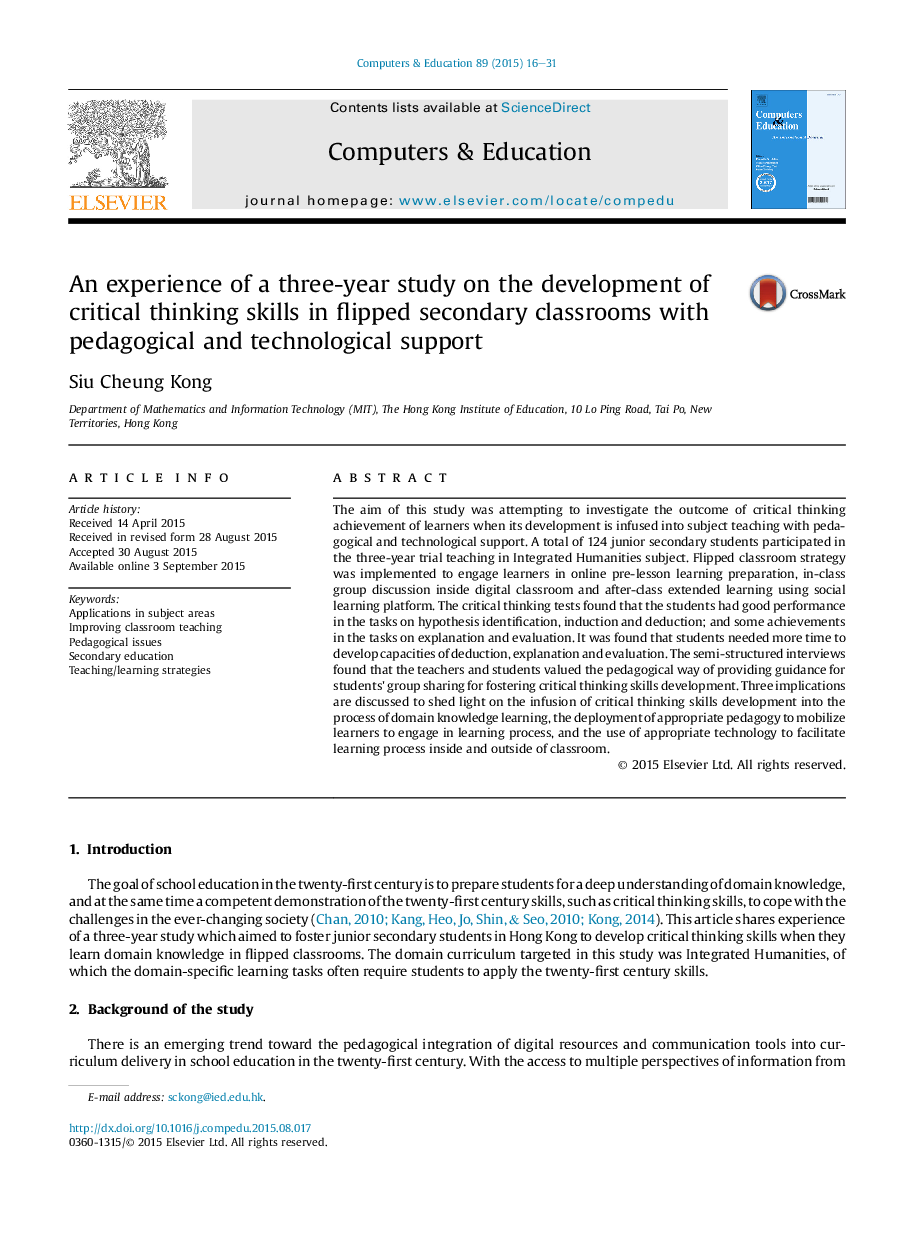| Article ID | Journal | Published Year | Pages | File Type |
|---|---|---|---|---|
| 348231 | Computers & Education | 2015 | 16 Pages |
•The article shares a three-year experience in developing critical thinking skills.•Four pedagogical ways for skills development were deployed in flipped classrooms.•Students performed well in hypothesis identification, induction and deduction.•More time was needed to develop skills in deduction, explanation and evaluation.•Suitable pedagogical and technological support is important for skills development.
The aim of this study was attempting to investigate the outcome of critical thinking achievement of learners when its development is infused into subject teaching with pedagogical and technological support. A total of 124 junior secondary students participated in the three-year trial teaching in Integrated Humanities subject. Flipped classroom strategy was implemented to engage learners in online pre-lesson learning preparation, in-class group discussion inside digital classroom and after-class extended learning using social learning platform. The critical thinking tests found that the students had good performance in the tasks on hypothesis identification, induction and deduction; and some achievements in the tasks on explanation and evaluation. It was found that students needed more time to develop capacities of deduction, explanation and evaluation. The semi-structured interviews found that the teachers and students valued the pedagogical way of providing guidance for students' group sharing for fostering critical thinking skills development. Three implications are discussed to shed light on the infusion of critical thinking skills development into the process of domain knowledge learning, the deployment of appropriate pedagogy to mobilize learners to engage in learning process, and the use of appropriate technology to facilitate learning process inside and outside of classroom.
